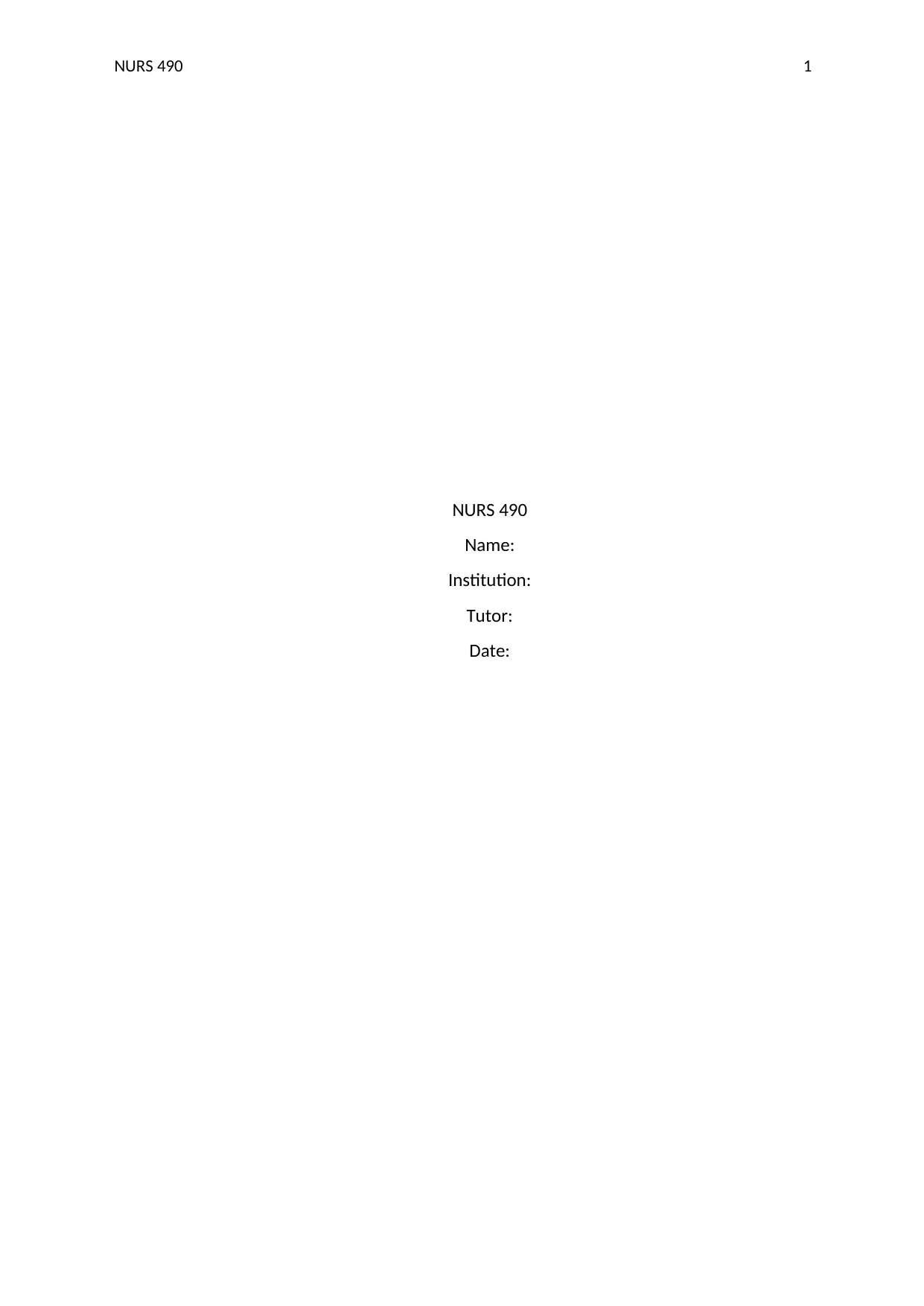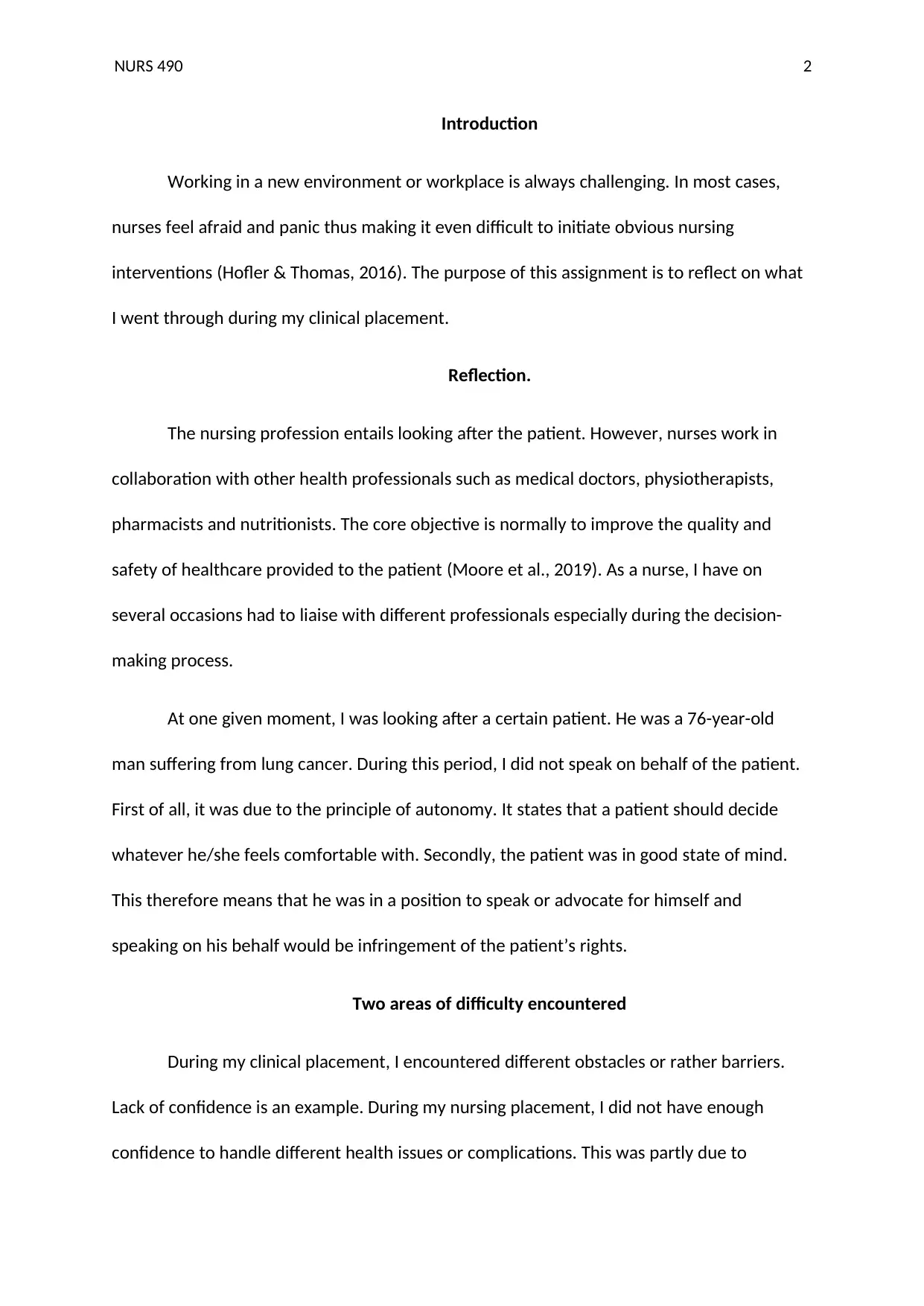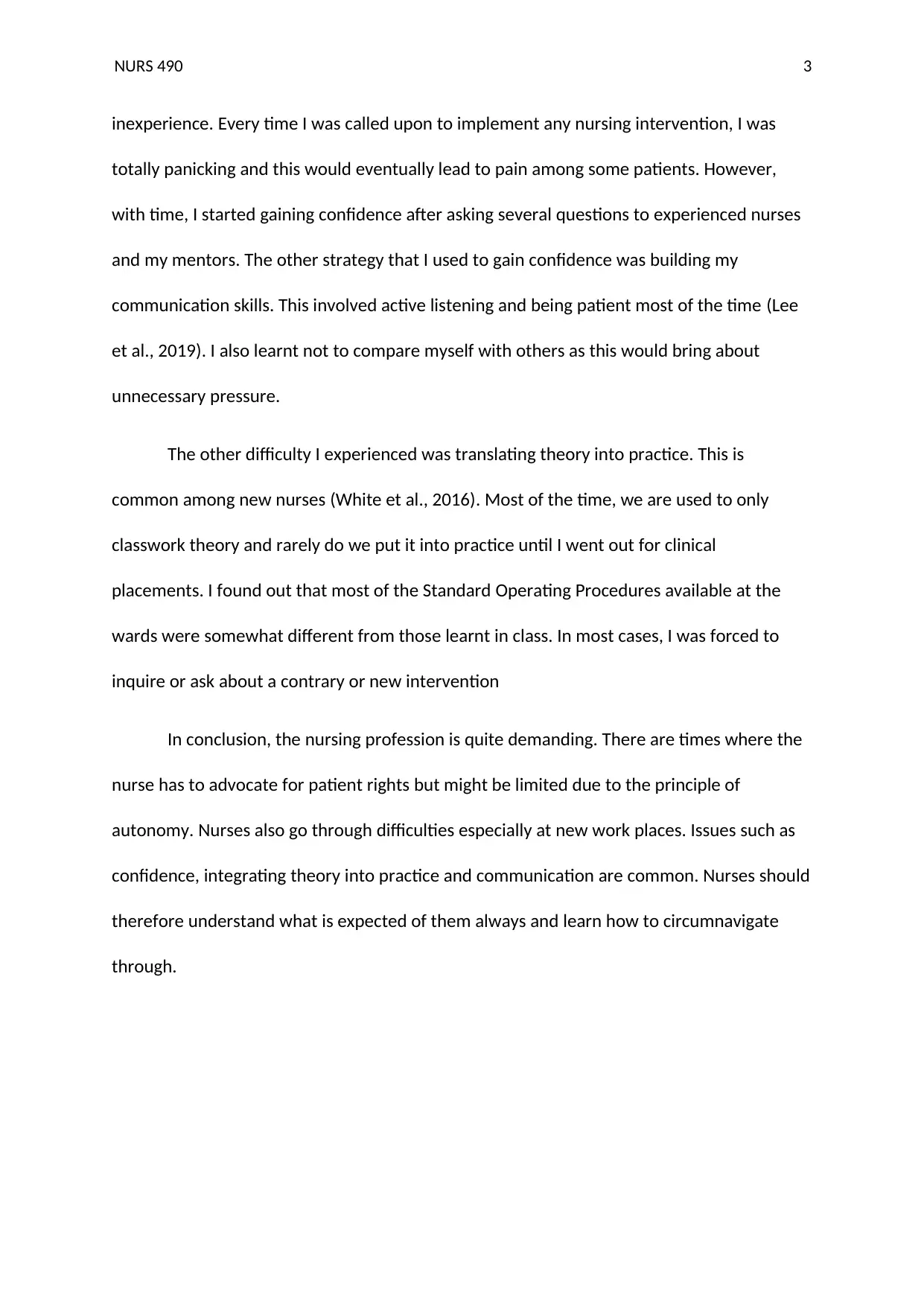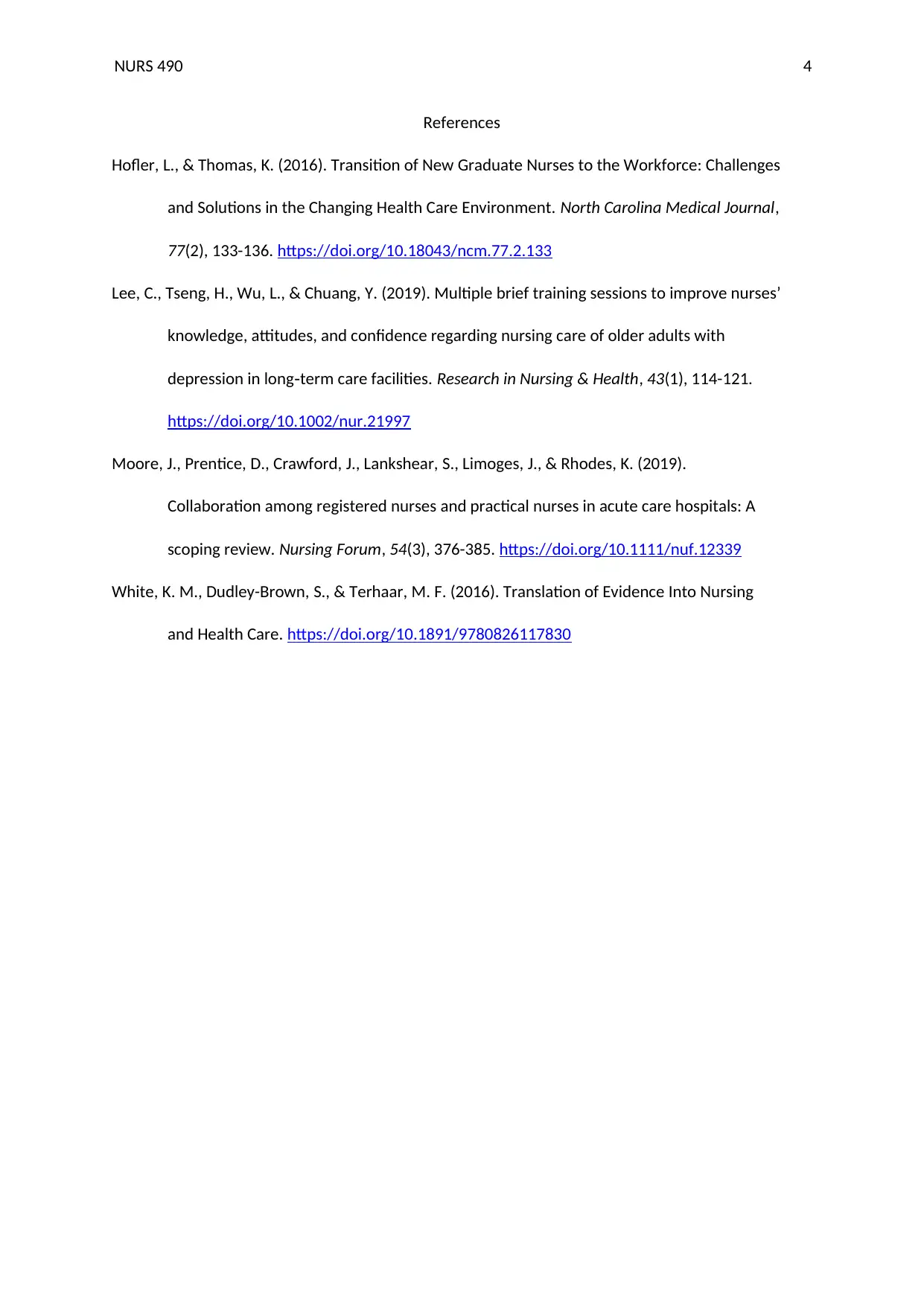NURS 490: Reflective Journal on Clinical Placement Experiences
VerifiedAdded on 2022/08/13
|4
|767
|22
Journal and Reflective Writing
AI Summary
This assignment is a reflective journal entry from a nursing student's clinical placement experience, focusing on the challenges and growth encountered. The student reflects on a specific situation where they chose not to speak up for a patient due to the principle of autonomy and the patient's mental state. The reflection covers two areas of difficulty: a lack of confidence stemming from inexperience and the challenge of translating theoretical knowledge into practical application, particularly when faced with differing standard operating procedures. The student highlights the importance of gaining confidence through experience, communication, and learning, and emphasizes the demanding nature of nursing, including the need to navigate ethical considerations and adapt to real-world practice. The student also provides references to support their reflections.
1 out of 4










![[object Object]](/_next/static/media/star-bottom.7253800d.svg)